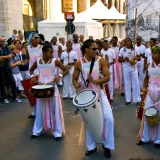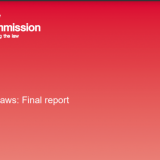The Online Hate Speech Interventions Map
By Charlotte Freihse & Vladimir Bojarskich Interventions against hate speech emerge almost daily. Measures range from policies to tech-innovations, to counter speech projects. Given the diverse approaches to counter hate speech online, we developed a hate speech interventions map to highlight the distinct approaches of different kinds of interventions. Furthermore, we suggest that a research-…










Recent Comments